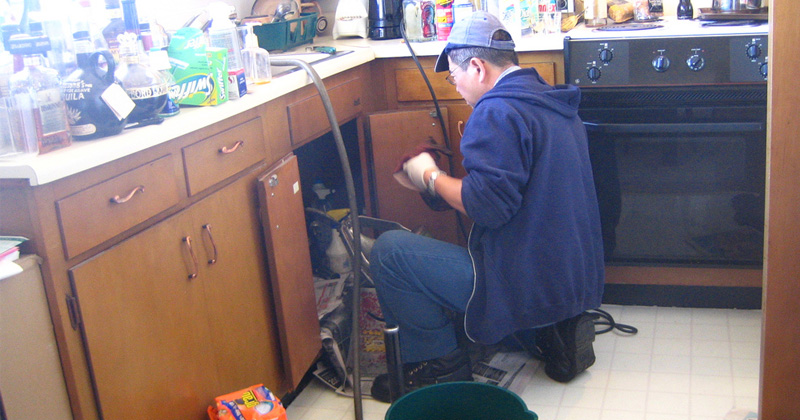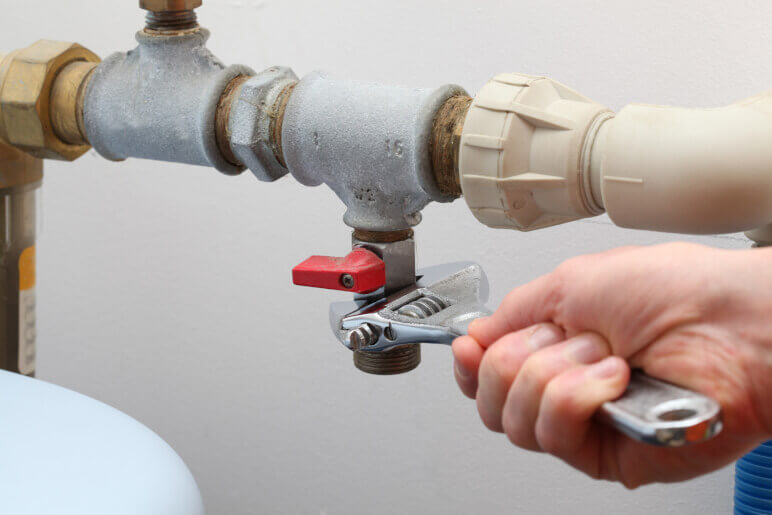Beginner's Guide to Proper Bathroom Plumbing Care
Beginner's Guide to Proper Bathroom Plumbing Care
Blog Article
Any individual has got his or her own opinions when it comes to Plumbing Tips for New Homeowners.

For new house owners, understanding and keeping bathroom plumbing can save both time and money by avoiding costly issues down the line. Here are some crucial bathroom pipes pointers to aid you maintain whatever running efficiently.
Acquaint Yourself with the Key Shut-Off Valve
Understanding where the primary water shut-off shutoff is located in your house is critical. This enables you to quickly shut off the water system in case of significant leakages or during pipes emergency situations, protecting against substantial water damages.
Consistently Examine for Leakages
Small leaks can result in big problems. On a regular basis examine under sinks, around bathrooms, and near plumbing components for any kind of signs of leaks. Try to find wetness, little drips, or corrosion. Capturing and repairing leakages early can avoid extra significant damage and conserve water.
Don't Ignore Slow Drains Pipes
If your sink or tub is draining pipes gradually, it's frequently an indication of an obstruction forming. Resolving this early can prevent a complete blockage. Use a plunger or a plumbing's serpent to clean out debris. Avoid using chemical drainpipe cleansers as they can harm your pipes in time.
Know What Not to Flush
Toilets are not waste disposal unit. Prevent flushing anything other than toilet paper and human waste. Things like wipes, feminine hygiene products, and cotton swabs should be gotten rid of in the trash to stop blockages and drain backups.
Mount Strainers in Drains
Place filters in your sink and tub drains to catch hair and various other debris before they enter your plumbing system. Cleaning up the strainers on a regular basis will help protect against buildup and maintain water flowing freely.
Preserve Your Hot Water Heater
Guarantee your hot water heater is readied to an ideal temperature level (generally around 120 degrees Fahrenheit) to prevent scalding and lower power use. Flush the container each year to get rid of debris build-up, which can lower the performance and life-span of your heating unit.
Update Your Fixtures
If your home has older components, take into consideration updating to more efficient models. Modern commodes, showerheads, and taps are created to make use of much less water while supplying good stress, which can substantially decrease your water bill and ecological impact.
Be Cautious with Do It Yourself Pipes Repair Works
While it's alluring to deal with all home fixings on your own, beware with pipes. Some concerns might need specialist experience, especially if they involve main water lines or drain fixings. Working with a professional can in some cases be a lot more cost-effective than DIY, specifically if it prevents more damage.
Prepare for Winter
Shield your pipelines from cold during cold weather by shielding pipes in unheated areas like cellars, attic rooms, and garages. During extreme chilly, let cold water drip from faucets offered by revealed pipelines to assist stop freezing.
Schedule Normal Maintenance
Think about scheduling yearly assessments with a certified plumbing. They can detect issues that you could miss, such as surprise leaks or deterioration on pipes and fixtures. Routine maintenance aids prolong the life of your pipes system and can avoid emergency situations.
Conclusion
Understanding and keeping your home's shower room plumbing can stop numerous usual issues. By following these vital suggestions, you can guarantee your bathroom continues to be useful and reliable, saving you time and money in the future.
Essential Plumbing Tips For Every Homeowner
As a homeowner, taking care of your plumbing system is crucial to maintaining the functionality and value of your home. While plumbing issues can be daunting, there are some essential tips that every homeowner should know to prevent major problems and save money in the long run. Here are some key plumbing tips that every homeowner should be aware of.
Regular Maintenance
One of the most important plumbing tips for homeowners is to schedule regular maintenance checks with a professional plumber. By having your pipes, fixtures, and appliances inspected regularly, you can catch any potential issues before they turn into costly repairs. A plumber can also provide valuable advice on how to properly maintain your plumbing system to prevent clogs, leaks, and other common problems.
Know Your Shut-Off Valves
It's essential for homeowners to know where the main shut-off valve is located in case of a plumbing emergency. This valve controls the flow of water into your home and can help prevent flooding in the event of a burst pipe or other serious issues. Additionally, it's important to know where the shut-off valves are for individual fixtures such as sinks, toilets, and washing machines so you can quickly stop the water supply if needed.
Watch What You Flush
Another important plumbing tip for homeowners is to be mindful of what gets flushed down the drains and toilets in your home. Avoid flushing items like paper towels, feminine hygiene products, grease, or hair as these can cause clogs and damage to your pipes. Installing drain filters or screens can help catch debris before it causes a blockage.
Insulate Pipes in Cold Weather
During winter months, it's crucial to insulate any exposed pipes in unheated areas of your home to prevent them from freezing and bursting. Frozen pipes can lead to extensive water damage and costly repairs. By adding insulation or heat tape to vulnerable pipes, you can protect them from extreme temperatures and avoid potential disasters.
Address Leaks Promptly
If you notice any signs of leaks such as damp spots on walls or ceilings, musty odors, or dripping faucets, it's important to address them promptly before they worsen. Even small leaks can lead to mold growth, water damage, and increased water bills over time. Ignoring leaks can result in more extensive repairs down the line.
Taking care of your home's plumbing system is an essential part of being a responsible homeowner. By following these key plumbing tips and staying proactive about maintenance and repairs, you can keep your plumbing system running smoothly and avoid costly issues in the future. Remember that prevention is key when it comes to plumbing problems – investing time and effort now can save you money and headaches later on. Stay informed about your home's plumbing system and don't hesitate to consult with a professional plumber if you have any concerns or questions.

Book Your Service Report this page